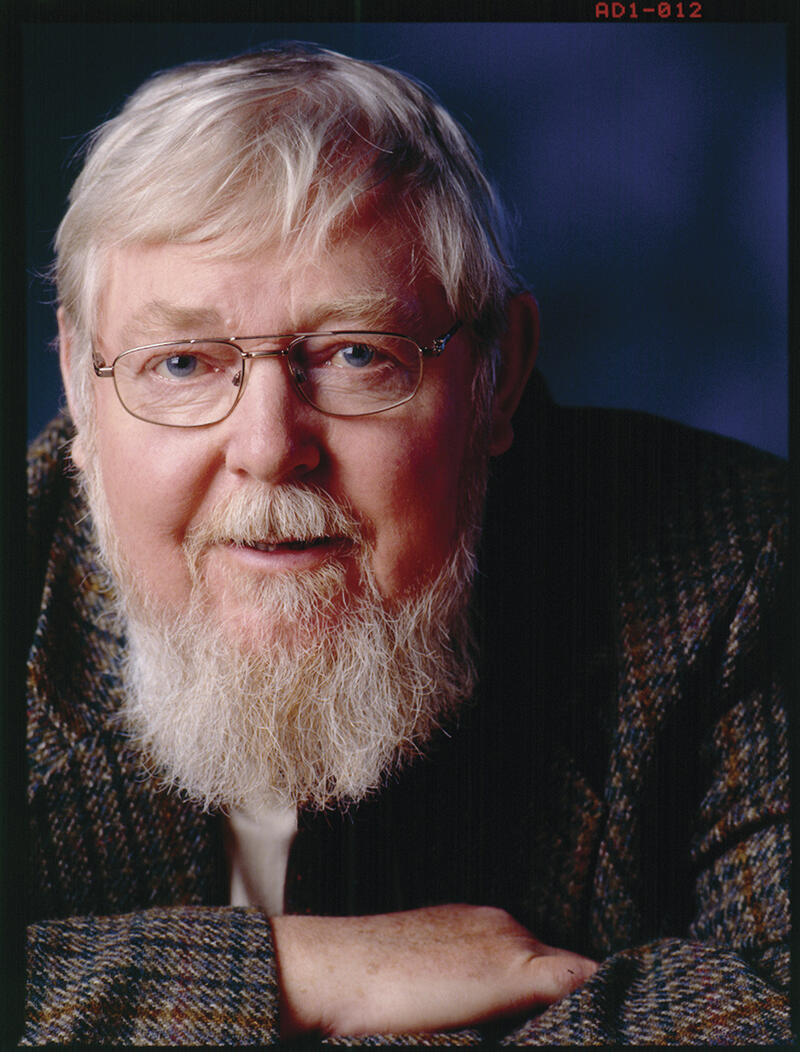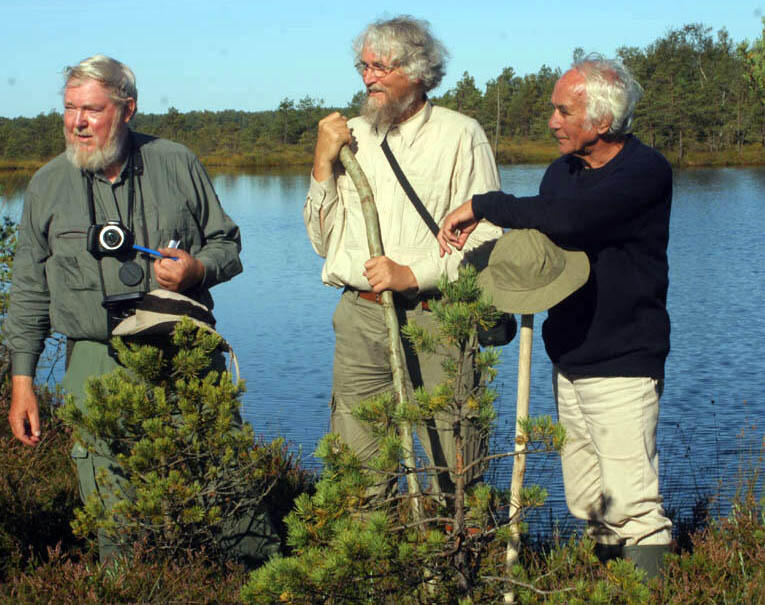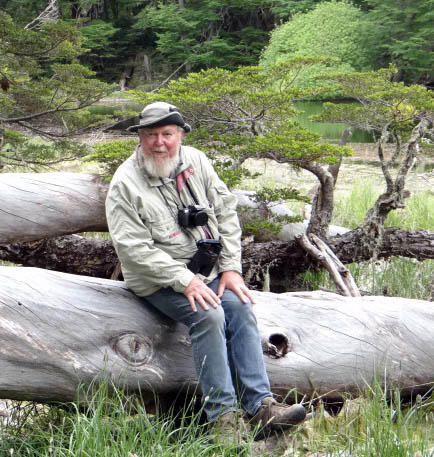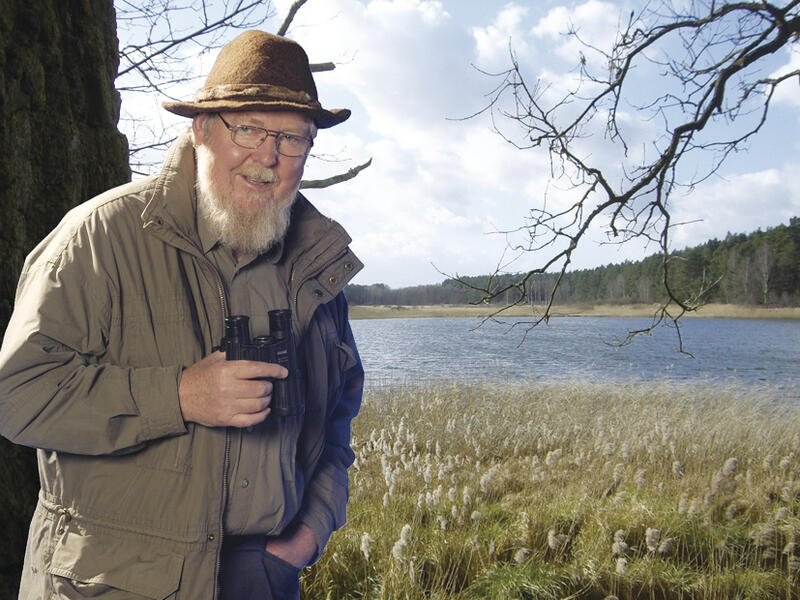“Exceptional and charismatic figure in nature conservation”
“Prof. Succow is an outstanding figure in nature conservation both nationally and internationally. His commitment to large areas of wilderness and long-term sustainable land-use in Germany is unique, and his efforts, contributed largely on an honorary basis, are outstanding. He is a personality with a comprehensive knowledge and this, combined with his passion, personal commitment, great skill and charisma, gives him the ability to convince other people of the importance of goals that have been recognised as right. We have him to thank for a revolutionary growth in the number of large protected areas in the eastern German states, and thus for giving new impetus to scientific and practical nature conservation in Germany.” That is how Dr. Heinrich Bottermann, the secretary general of the Deutsche Bundesstiftung Umwelt (DBU), today announced the choice of Em. Prof. Michael Succow (74, Greifswald) as recipient of the DBU's Honorary Lifetime Achievement Award. German President Gauck will present the prize, worth 10,000 euros, in Essen on 8 November.

© Michael Succow Stiftung
Seized big chance for nature and environmental conservation
Bottermann recalled how, during the time of political upheaval in Germany, Succow – at the insistence of the citizens' movement while he was the representative of the GDR's minister of nature, conservation and water management – and his fellow campaigners, Dr. Matthias Freude (Berlin), Dr. Lebrecht Jeschke (Speck, Mecklenburg-Vorpommern) and Dr. Hans Dieter Knapp (Putbus, Mecklenburg-Vorpommern), saw the big chance for nature and environmental conservation that had suddenly opened up.
A race against time
By means of extraordinary personal effort, and in a race against time, they managed to place the draft for a law on establishing national parks on the agenda of the last legislative meeting of the Council of Ministers of the GDR on 12 September1990, he said. Bottermann: “Speed was of the essence, because after German reunification, it would have taken years, judging by past experience, for areas of a comparable size to have become protected under law. By that time, however, industry, trade and tourism would very probably have left a very tangible mark – and certainly not always to the advantage of nature conservation. The disruption of eastern Germany's most valuable landscapes would have been inevitable; plans to that effect were already lying ready to go.”

© Michael Succow Stiftung
Tour de force for eastern German nature conservation
The secretary general described how, at one stroke and within a very short space of time, 12.1 percent of the territory of the former East Germany received a temporary protected status, and 5.5 percent a permanent protected status under the national parks programme. In the end, this tour de force led to five national parks, six biosphere reserves and three nature parks with a total area of 4,800 square kilometres included in the reunification agreement, he said. With its pioneering conception, this “centrepiece of eastern German nature conservation” had also served as a model for nature conservation and environmentally-friendly land usage in western Germany and the whole of Europe, Bottermann said.
"Right Livelihood Award" basis for his own foundation
Succow received the Swedish “Right Livelihood Award” - widely viewed as the “alternative Nobel Prize” - for this work, and used the prize money to found the Michael Succow Foundation for the Protection of Nature. It is the organisational basis for numerous conservation projects in central and Eastern Europe and the first non-profitmaking nature conservation foundation constituted under civil law in the eastern German states. Around 1990, Succow also began to work in various former Warsaw Pact countries as well as in central and eastern Asia, an involvement that continues to this day. The goal here as well was to create large protected areas that are internationally recognised. As a scientist, Succow was particularly interested in the protection and development of moors and wetlands. The Michael Succow Foundation is continuing this work today in its projects.

© Michael Succow Stiftung
Outstanding landscape ecologist and trailblazer on classifying and protecting moors
Bottermann went on to say that as a university teacher, Succow was an outstanding landscape ecologist, and took a strong interdisciplinary approach to research and teaching. The secretary general described the creation of the chairs of “International Nature Conservation”, “Environmental Ethics” and “Landscape Economy” at Greifswald University as having set precedents. Succow had established a centre for land usage/nature conservation that had become one of the first addresses in Germany for these fields, he said. Bottermann also pointed out the great value to researchers and nature conservationists of Succow's works on classifying the moors of eastern Germany and the structure of eastern German nature areas as regards landscape ecology. He said Succow had consistently be able to motivate researchers with his enthusiasm for a wide variety of projects, and to win over even critical figures from business and the research sector to engage with the protection of moors by means of his almost charismatic skills.
Numerous honorary positions and memberships underline his commitment to nature conversation
Succow, who was born in Lüdersdorf near Bad Freienwalde in the Mark Brandenburg, has held many honorary positions since 1990: from 1990 to 2003, he was vice president of the Naturschutzbund Deutschland, from 1993 to 1996 a member and deputy chairman of the German government's Advisory Council for Environmental Issues, from 1993 to 2006 a member of the board of trustees of the Michael Otto Foundation for Environmental Protection in Hamburg and from 2003 to 2013 a member of the DBU Board of Advisors. Since 1991 he has been a member of the German national committee for the programme “Man and the Biosphere” (MAB) of the United Nations' Educational, Scientific and Cultural Organisation (UNESCO).

© Michael Succow Stiftung